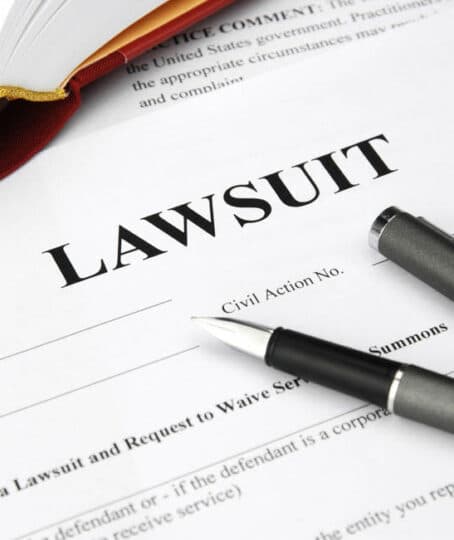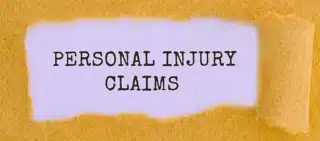
When a Dog Attacks Again and Again If dogs attack once, it’s alarming. When they attack five times, it’s no...


Factors that can impact your chances of winning your personal injury case include the circumstances of the accident, the law of the state in which the accident occurred, and whether you hire an attorney. States have differing laws about personal injury claims, so speaking with an attorney in your area can help you understand your rights and make sure that, if you do have a case, you file the lawsuit within the required period.

A personal injury case is where an injured party (the plaintiff) suffers injuries because of an at-fault party’s (defendant’s) behavior and files a claim to recover for his or her losses. For example, if another driver sideswiped your car, causing a rollover accident that left you with a totaled car and broken bones, you may have a personal injury case.
Different states have differing laws about the types of personal injury cases and what the plaintiff needs to prove to win the case. Before filing a lawsuit, you may benefit from speaking to an experienced personal injury lawyer about your situation.
One of the first, pre-lawsuit steps in a personal injury case occurs when you file a claim with the other person’s insurance company, if applicable. After you file the claim, the insurance company may evaluate the claim and may give you an offer.
Note that, in most cases, this initial offer given by insurance companies is likely far less than what you should get. Unless your attorney has told you that the offer is a “good” offer, you may benefit from resisting the temptation to accept the insurance company’s offer and “be done with it.” Contacting a personal injury lawyer early on may help you understand your rights and what types of compensation you could receive.
The odds of winning your personal injury case vary, especially from state to state. Every state has different laws about what the plaintiff needs to prove in a personal injury case and what must happen for them to win. The odds of winning your personal injury case depend on the circumstances leading to the accident, the law of the state, and some other factors, which we’ll discuss more below.
In Alabama, for example, plaintiffs may not receive any compensation if they are found to be at fault for the accident – no matter the degree of fault.
Illinois, however, follows the modified comparative negligence standard. Under this standard, plaintiffs may recover compensation for a personal injury lawsuit if they are less than 50% at fault.
Until you receive a judgment in your favor, there is no magic formula or guarantee to ensure that you win your case. That said, there are factors that can help you set yourself up for success, and, if you hire an attorney, help your attorney successfully prepare and present your case.
If the law requires you to report a car accident to the police, for example, please do so. When you report the accident to the police, it’s generally a good idea to “stick to the facts,” and avoid making statements that may sound like you’re admitting fault.
For example: In the heat of the moment following a car accident, you may feel like it would be polite or harmless to say, “Sorry, I didn’t see you. I was looking at my phone.” While you may not mean anything by these statements, the defense and insurance company may point to these statements to prove that you said that the accident was your fault. This may not be fatal to your case; however, if it can be avoided, then it will make it easier for you to prove that defendant caused the accident.
Seeking medical attention shortly after an accident – even if the injuries seem minor – may be beneficial for your health, and for your personal injury claim. Having a doctor examine you and document any symptoms or possible signs of injury creates a snapshot in time. This snapshot can mark the difference between an unsuccessful claim.
The defense and his or her insurance company will likely be looking for any possible gaps in your case to avoid paying compensation. Let’s say that you are claiming that you suffer from back, spinal, or internal injuries (all of which can develop gradually) because of the accident. Without that initial snapshot, this can create an uphill battle for you to prove that the accident caused your injury. While this may not prevent you from winning your case, it may delay the case, costing you precious time and money in the meantime.
If you are seen by a doctor, follow all treatment recommendations. Failing to take prescribed medication or attend physical therapy may make it harder for you to prove your case.
In Illinois, there are three general types of damages that you may receive if you win your personal injury case: economic, non-economic, and punitive damages.
Economic damages, as the name suggests, is compensation for your financial injuries. Economic damages may include current and future medical bills, property damage, and lost wages.
Non-economic damages seek to compensate you for the personal, human toll the accident has taken on you. Pain and suffering, loss of companionship, disfigurement, and loss of society are some examples of non-economic damages that you might ask for as compensation for the harm done to you.
Punitive damages serve to punish the person or entity responsible for your losses, and to deter future people and entities from committing the same or similar types of acts. Not every successful case will bring with it an award of punitive damages, however. Punitive damages are typically only awarded where the at-fault party’s actions were significantly reckless, egregious, or intentionally. For example, if a doctor knew that you were severely allergic to a prescription medicine he or she prescribed to you, but prescribed it anyway, the court may require the doctor to pay punitive damages.
An experienced attorney may know what a good settlement offer is in a personal injury case. This can be helpful for you so that you know the worth of your case and are potentially protected from tactics by the insurance company or defense to accept an inadequate settlement offer. A personal injury lawyer may also help you gather the evidence you need to prove your case and advocate for you in and out of court.

When a Dog Attacks Again and Again If dogs attack once, it’s alarming. When they attack five times, it’s no...

Overview of the Personal Injury Claim Process in Illinois No one expects to suffer an injury or get involved in...

Exploring Caps on Damages in Illinois Personal Injury Cases Illinois does not have laws capping damages in successful personal injury...